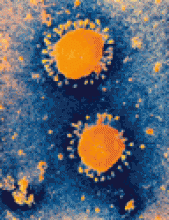- © 2004 Canadian Medical Association or its licensors
In 1990 an independent international initiative called the Commission on Health Research for Development reported that, of the US$30 billion in public- and private-sector funds spent worldwide on health research, only 5% was directed toward the problems of developing countries, who bore 93% of the global burden of “preventable mortality.”1 By 1998, the global investment in health research had more than doubled to US$73.5 billion,2,3 but still the proportion of funds directed to developing countries was, and is, essentially unchanged. The fact that only 10% of health sciences research specifically addresses the problems of 90% of the world's population — the 10/90 gap — is but one aspect of the profound disparities in health and health care capacity between rich and poor.
Along with the ancient scourges of malnutrition and endemic disease, developing countries are now experiencing the health burdens imposed by industrialization, urbanization and environmental degradation. Governments and international aid agencies struggle to make progress despite a general decline in stable foreign-aid commitments from Western governments, including our own. Announcements of increases to foreign aid often seem like a shell game: newly announced funds aren't always so new, and are frequently tied to commercial foreign investment. Ironically, some of the most genuine philanthropy is now arising from private multinational corporations: the financial contributions to global health of the Bill and Melinda Gates Foundation, for example, now exceed the entire program budget of the World Health Organization.
Lacking largesse, is there really anything that medical journals can do about deep-seated inequities in health capacity or, more specifically, in capacity for health research? Some journal editors have been shouting into the wind with editorials and commentaries,4,5,6 exposés,7 policies of open access to their publications,8 and even occasional forays into sub-Saharan Africa.9 Cynics might see this not so much as shouting at the wind as farting into it — some relief to the editor, but with a quickly dissipating effect. One would like to think, though, that the duties of medical journal editors include a responsibility to examine the social scope of medicine and to advocate for, among other things, global equity in health. In this sense, journals are not merely publications but sites of action that can lend some support to the work of health care providers and researchers in the developing world. It is a question, partly, of cultivating a sense of professional solidarity among physicians that is global, not merely national, and of conceiving of biomedical education as necessarily an international enterprise. In practical terms, this might involve examining the composition of our editorial boards10 (and staff), sponsoring visiting editors from developing countries, hosting conferences, conducting exchanges, donating or subsidizing subscriptions (e.g., through the HINARI initiative), supporting open Internet access, providing editorial support to researchers in the developing world, and setting targets for editorial and scientific coverage of global health issues.
Hence, beginning with this issue, we hope to extend our coverage of international health issues. The news, analysis and practice articles that appear under the new general heading of “Synopsis” (see page 25) will now be more likely to include international content and to be written by international contributors. Similarly, we hope to publish more original research and reviews drawn from international contexts, such as the “primer” on leprosy in this issue (page 71). Journal editors are answerable not only for what appears in their pages, but also for what doesn't: amid the glamour of drug breakthroughs, the intricacies of payment schemes for doctors, the scandals of local mismanagement and squabbles over health reform, we cannot afford to neglect a view of sickness and health in the rest — that is, most — of the modern world. — CMAJ











